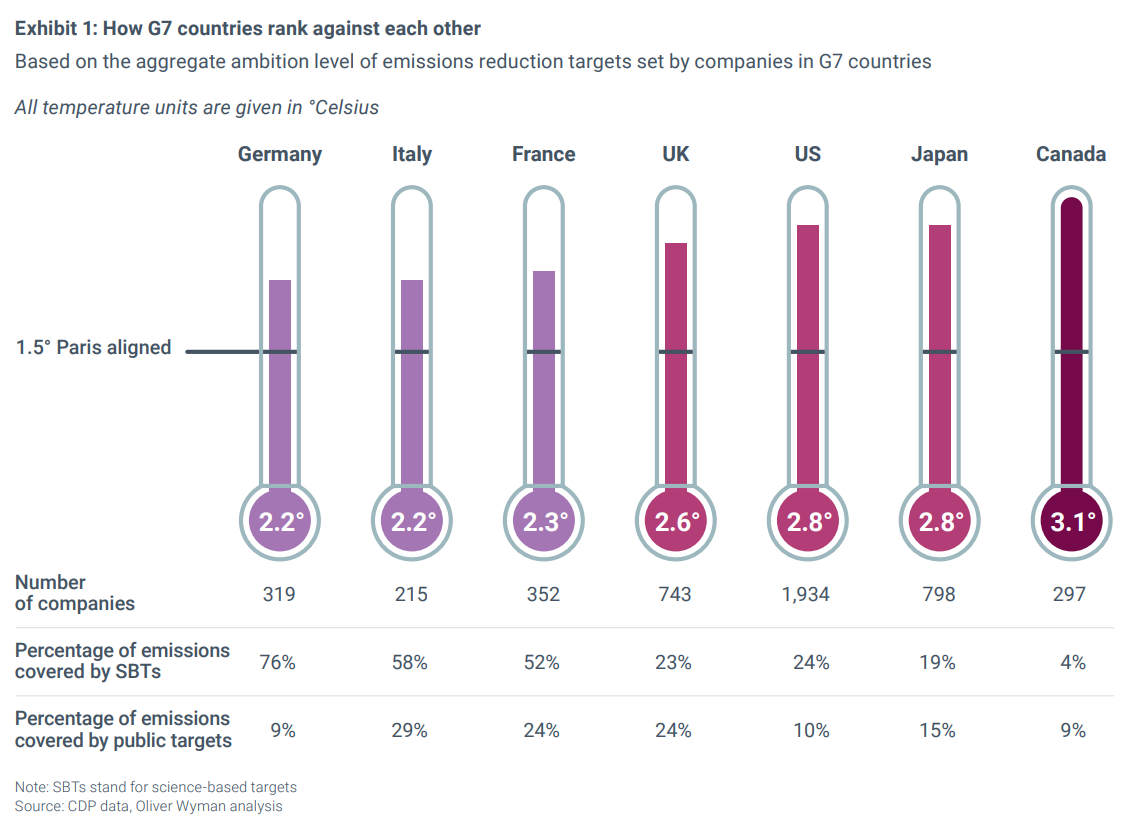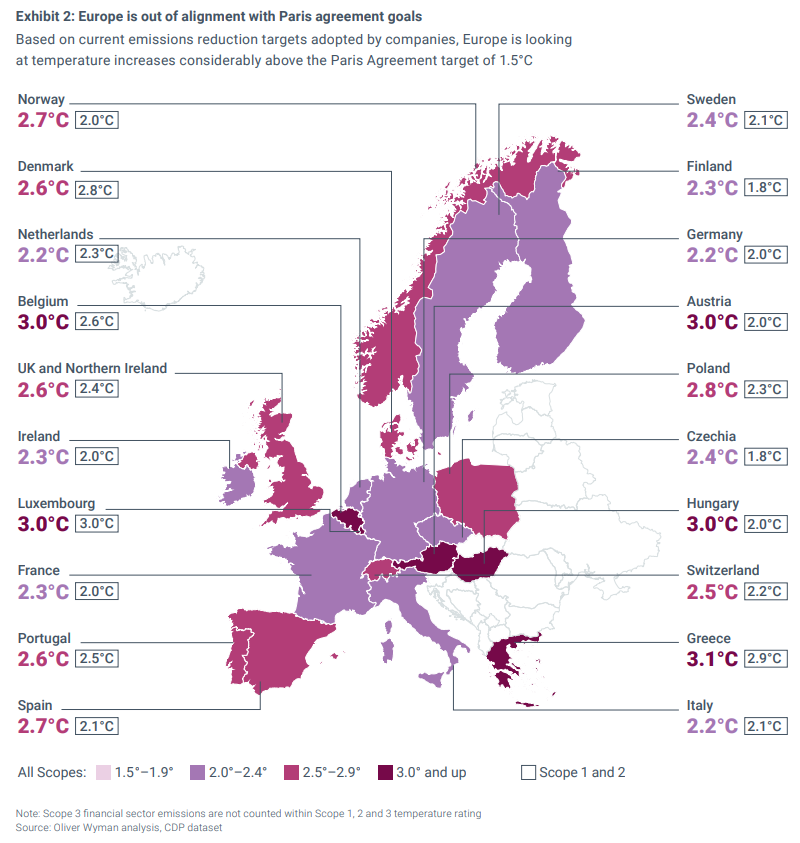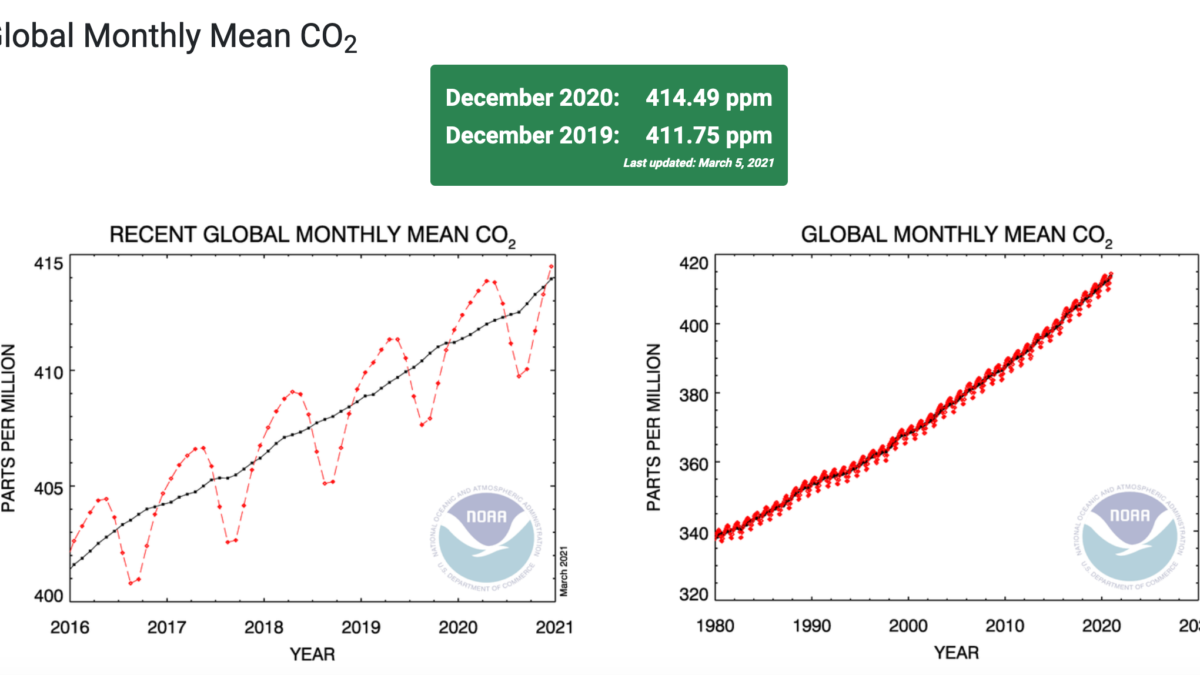G7 company emissions falling short of global climate goal, study shows – “As we approach COP27, we must get our 1.5°C goal off life support”

By Juliette Portala
6 September 2022
(Reuters) – Companies in the Group of Seven (G7) economies are failing to meet Paris Climate Agreement objectives, non-profit disclosure platform CDP and global management consultancy Oliver Wyman said on Tuesday, based on current corporate pledges to cut emissions. [Missing the Mark: 2022 analysis of global CDP temperature ratings –Des]
Under the global 2015 Paris deal, countries agreed to cut greenhouse gas emissions fast enough to limit global warming to 2 degrees Celsius (°C) and aim to keep the rise below 1.5°C, which scientists say would avert some of its worst effects.
Across the G7, which consists of Britain, Canada, France, Germany, Italy, Japan, and the United States, corporate emissions targets are overall on a 2.7°C warming trajectory, CDP and Oliver Wyman analysis showed.
“It is not acceptable for any country, let alone the world’s most advanced economies, to have industries displaying so little collective ambition,” Laurent Babikian, Global Director of Capital Markets at CDP, said in a statement.
“Momentum is growing, but as we approach COP27, we must get our 1.5°C goal off life support,” he added.

Collective emissions of U.S. and Canadian firms are seen matching the pace of decarbonisation required to restrict global warming to 2.8°C and 3.1°C, respectively, with the study stating that it is “largely the result of companies completely lacking targets, rather than targets that lack ambition”.
The study revealed that firms in Germany, Italy, and the Netherlands had the most ambitious targets to lower emissions in the G7, as they align with 2.2°C on average, while France is at 2.3°C and the United Kingdom at 2.6°C.
“The analysis highlights big differences in ambition and willingness across companies to take a lead with their targets, and the urgent need to spread best practices further and faster,” Partner, Financial Services at Oliver Wyman James Davis said.
Nearly 200 countries will convene at COP27 climate summit in Egypt next November, after what has been for many a devastating summer of drought, heatwaves and other climate-linked extremes.
G7 company emissions falling short of global climate goal, study shows



I’ve followed your blog for years, thank you for keeping it going. I notice it gets very few comments, it’s just the damnable facts, not served with hope or denial. It’s a relief to escape the delusions of green progressives or the vast majority who would rather not think about the end of our world.